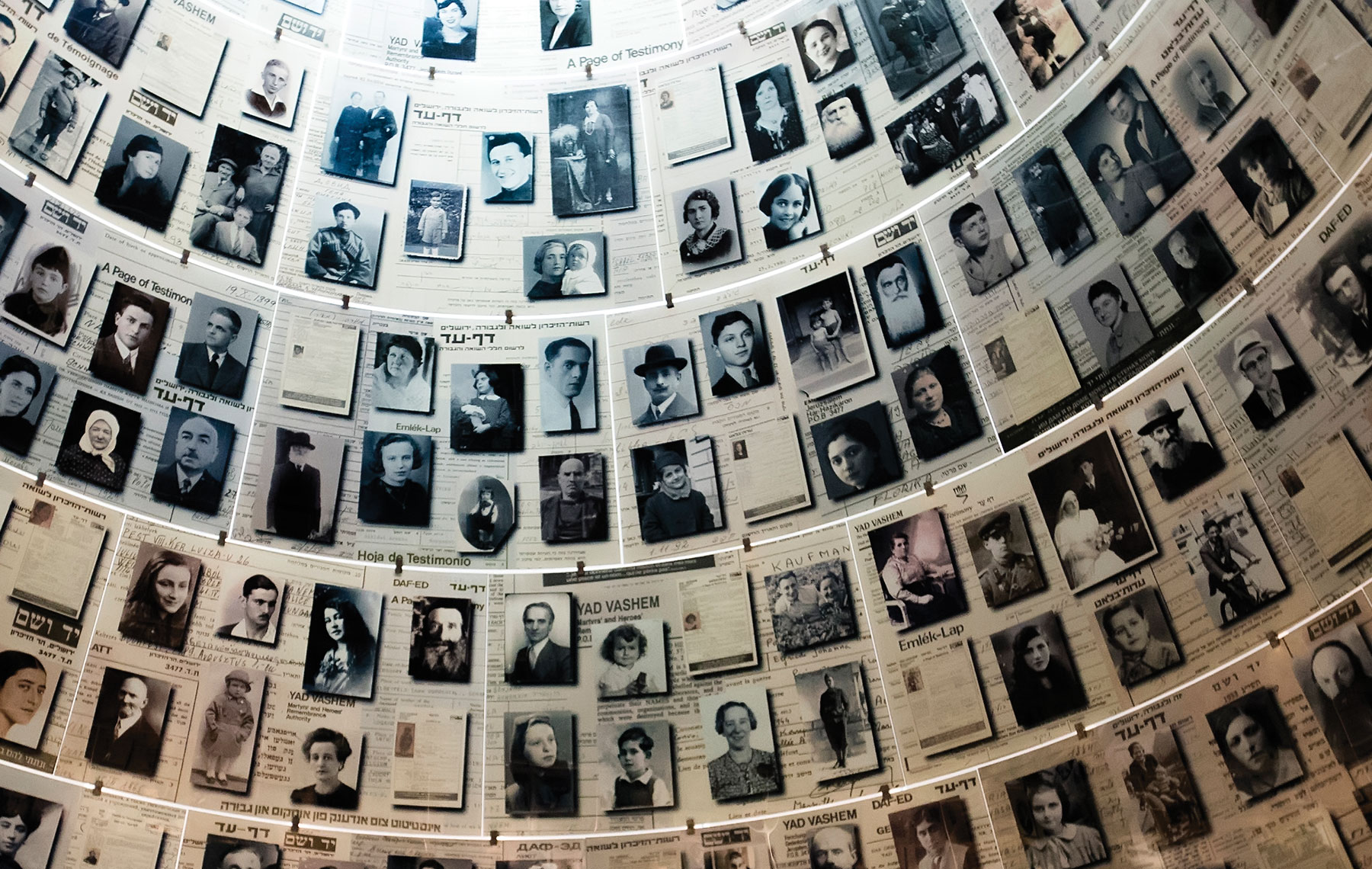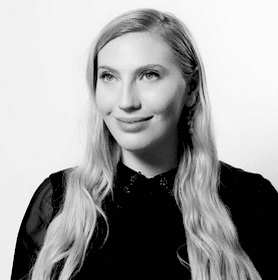 The Hall of Names at Yad Vashem in Jerusalem; Photo from Deposit Photos
The Hall of Names at Yad Vashem in Jerusalem; Photo from Deposit Photos In a college screenwriting class, a classmate pitched a film about young Sigmund Freud. Another young man commented that Freud should rape his mother in the screenplay. Almost immediately, other women and I argued this was a terrible idea. “Do you want to be the person who brings that story into the world?” I asked. “That’s not entertainment.” Another classmate looked at me and said, “ ‘Schindler’s List’ isn’t entertainment.” I told him to f— off.
It was obvious why he chose to reference a film about the Holocaust to silence me: My grandmother had been in Auschwitz and my biological father was born in a refugee camp for displaced people in Germany. I belong to the first subsequent generation of that side of my family not scalded by the genocide. My Jewish heritage was being knifed apart to prove a point.
But I couldn’t call my classmate anti-Semitic. Although the Holocaust hadn’t affected his family, he was a Jew; in fact, he actively was involved in Jewish life on campus. We had a shared heritage — or did we?
In the decades after the Holocaust, many Jews claimed it to be their ancestral history. However, by conflating the genocide as a universal Jewish experience, we’ve allowed people who have no trauma associated with it to speak over those who do.
There is a fundamental difference between American Jews whose families fled to the United States after the Holocaust and those who have lived in this country for generations. Our traumas aren’t the same.
I am directly descended from the Holocaust. My classmate wasn’t. That’s why he could weaponize it against me in a way that wouldn’t disturb or disrupt him.
His grandmother never showed him the numbers inked onto her arm and said, “Hitler did this to me.” His great-grandmother wasn’t dragged naked into the streets by the SS after nightfall, never to return. He didn’t wonder: What was the fate of countless other family members who weren’t liberated from Auschwitz?
There is a distinction between the descendants of Holocaust survivors and Jews without the genocide in their lineages.
Descendants of Holocaust survivors have a unique intimacy with genocide. They aren’t just putting themselves in the shoes of the innocents going through a selection; they have lost family. The violence inflicted on my grandparents lives in my genetic makeup. According to a research team at Mount Sinai Hospital in New York, Holocaust survivors had genetic changes they passed on to their children. We are biologically different. Unlike the descendants of Jews who lived in the United States during World War II, I am at a higher risk for stress disorders. The molecules in my DNA are the residue of violence that I’m glad their families were never exposed to.
There is a distinction between the descendants of Holocaust survivors and Jews without the genocide in their lineages. It is akin to the distinction between black Americans who descended from slaves and a black person who recently immigrated to the U.S. from Nigeria. Although there is racism in the U.S., the Nigerian immigrant doesn’t have the familial trauma and economic consequences of rebuilding in the aftermath of slave ships, plantations and the Jim Crow South. He wouldn’t take ownership of what happened in the U.S. because he has no historical connection to it. He wouldn’t bring it up as a talking point in conversations about race — even talking over people who are directly tied to that history.
Are both threatened by racism? Absolutely. Are the histories of racism they’ve inherited different? Completely.
Do all Jews experience anti-Semitism? No doubt.
But we have experienced it in different forms. Some American Jews come from the cruelty of Russian pogroms. Others fled an increasingly intolerant Iran or were expelled from Iraq. Several have survived institutional discrimination on American soil. These are all valid experiences, but the people who have these gashes in their family trees should be the ones who take ownership of them.
To Jews with no familial ties to the Holocaust: Stop acting like you have inherited ownership of it. When you make the Holocaust a universal experience, you not only speak over people directly impacted by that genocide but erase the diverse paths of survival our people have taken.
I say this because not all my family has the trauma of the Holocaust in their DNA.
My mother’s paternal side comprised rabbis who came to the U.S. from Lithuania in the late 1800s to spread Jewish education. Her mother’s side emigrated from the Soviet Union before the Great Depression. All her grandparents were born on American soil. Untouched by the Holocaust, they raised her in a Long Island Jewish suburb where she never experienced anti-Semitism. Being that her identity was the norm, her childhood home was not as vocally Jewish as mine.
While on a grant to work as a traveling scientist in South America, my mother was invited to collect plants on a farm in the Colombian Amazon. Its owner was a successful German entrepreneur who provided food and lodging in return for conversations on the weekends. After a couple of drinks, he announced that once a month he meets with his German friends so they can put back on their old Nazi uniforms and salute Hitler together. Then, not knowing my mother was Jewish, he took out a photo of him at 15, wearing his SS uniform.
My mother was too afraid to claim her Jewish identity. Instead, she fled to a nearby city, finding shelter in a motel whose rooms had geckos crawling on its walls. At 23 years old, she vowed she would never hide her Judaism again and would raise aggressively Jewish children.
When she looked into the eyes of a Nazi, it changed her and everyone who would follow her in our family. Because these moments uniquely define us and our kin. They are individual, not universal.
We talk about the Holocaust as if it belongs to all of us. We treat it like a talking point any Jew can pick off a branch of some fictional communal family tree. But every Jewish family is unique. Anti-Semitism belongs to all of us. Yes, we must talk about the atrocities our people have endured, but also acknowledge that some of us live closer to the crime scenes.
Ariel Sobel is a screenwriter, filmmaker and activist, and won the 2019 Bluecat Screenplay Competition.





















 More news and opinions than at a Shabbat dinner, right in your inbox.
More news and opinions than at a Shabbat dinner, right in your inbox.